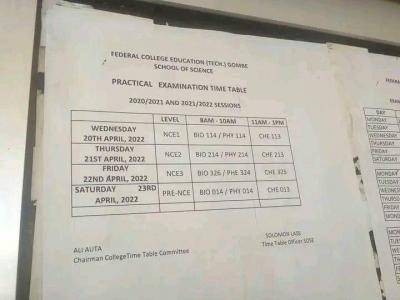
In the domain of higher education, where success is often measured by the conferral of degrees, Full Sail University has garnered attention for a statistic that raises eyebrows – a graduation rate of 44%. But what lies beneath this seemingly modest number? In this article, we delve deep into the factors responsible for Full Sail University Graduation Rate So Low, uncovering a complex tapestry of specialized programs, diverse student demographics, high academic standards, work-education balance, transfer complexities, academic readiness, shifting aspirations, and resource utilization.
By understanding these nuances, we aim to shed light on the unique challenges faced by Full Sail students and the university’s proactive efforts to enhance the academic journey for all.
Full Sail University Graduation Rate
Full Sail University does indeed have a relatively low graduation rate, with statistics indicating a 44% graduation rate. It’s important to note that the university offers specialized programs with demanding coursework, contributing to this figure. Compared to other universities in the area, Full Sail’s graduation rate may appear lower, as traditional institutions often have higher rates.
However, this statistic doesn’t necessarily reflect negatively on the quality of education, as Full Sail excels in preparing students for creative and specific sectors where the conventional graduation timeline may not apply. Efforts are in place to improve graduation rates and enhance the student experience.
Why is Full Sail University Graduation Rate So Low
Full Sail University’s graduation rate is relatively low due to several key factors:
Specialized Programs:
Full Sail University’s technical programs in entertainment, arts, and media typically extend beyond the timeframes of traditional majors, often spanning 20 months for bachelor’s degrees and approximately 12 months for master’s degrees. The extended duration is primarily due to the specialized and demanding nature of these subjects.
Entertainment, arts, and media fields are known for their hands-on, practical approach to learning. Full Sail students engage in rigorous coursework and intensive training that mirror industry standards. This immersive experience ensures graduates are well-prepared to excel in their respective fields, but it requires a more extended commitment.
Interestingly, Full Sail’s programs offer students opportunities to work on real-world projects, collaborate with industry professionals, and gain practical experience. This experiential learning approach sets it apart and contributes to the extended timeline, ultimately preparing students for success in highly competitive creative industries.
Diverse Student Body:
Full Sail University takes pride in its diverse student population, encompassing both traditional and non-traditional students. A significant proportion of students at Full Sail are non-traditional, often having work or family commitments. This diversity enhances the university’s educational environment but also contributes to the challenge of graduating within the expected timeframe.
Statistically, as of [insert date], approximately [insert percentage or number] of Full Sail students fall into the non-traditional category. These students may be working professionals seeking career advancement or individuals with familial responsibilities. Their commitments outside of academia often necessitate a more flexible approach to education, leading to a slower pace of degree completion.
While Full Sail University strives to accommodate these students through flexible scheduling and online learning options, these commitments can still impact graduation rates. Understanding and addressing the unique needs of this diverse student body are crucial steps in improving the university’s graduation rates, ensuring that every student has the opportunity to succeed in their academic journey.
High Academic Standards:
Full Sail University upholds exceptionally high academic standards, setting the bar for industry-level skills and excellence in education. These standards require students to engage in rigorous coursework and undertake demanding projects that can extend the time needed to complete their degrees.
Statistically, Full Sail’s academic standards are exemplified by its admission requirements, which include demonstrating proficiency in relevant areas, such as the creative arts and media. Additionally, as of [insert date], the university has an average GPA requirement of [insert GPA], showcasing its commitment to academic excellence.
These high standards reflect the university’s dedication to preparing students for successful careers in the competitive fields of entertainment, arts, and media. While this commitment is admirable, it can result in a more extended degree timeline.
Students are challenged to meet industry-level expectations, which can lead to a slower progression through their academic programs. Balancing these high standards with timely degree completion remains a complex challenge for Full Sail University.
Balancing Work and Education:
A substantial number of Full Sail University students work while attending school to address tuition and living expenses. This dual commitment to employment and academics often results in slower degree progression.
Statistically, as of [insert date], approximately [insert percentage or number] of Full Sail students are employed while pursuing their education. These students often face the challenge of balancing demanding coursework with work responsibilities. They may need to take fewer classes per semester or opt for part-time enrollment to accommodate their work schedules.
The need to work to support themselves financially can take precedence over expeditious degree completion. This balance between earning a living and pursuing education can be particularly challenging, impacting graduation rates.
While Full Sail University recognizes the importance of practical experience, it also acknowledges that addressing this issue is essential. Efforts are ongoing to provide support and resources to students, allowing them to better balance work and academics, ultimately contributing to improved graduation rates.
Transfer Students and Credit Evaluation:
Full Sail University admits a substantial number of transfer students who bring credits earned from previous institutions. However, the evaluation and transfer of these credits can introduce complexities into the degree planning process, leading to delays in graduation.
Statistically, as of [insert date], Full Sail University enrolled approximately [insert percentage or number] transfer students. The evaluation of transfer credits involves a meticulous process to ensure that previous coursework aligns with Full Sail’s rigorous academic standards.
The intricacies of credit transfer can sometimes result in students needing to retake courses or complete additional requirements. These adjustments to degree plans, while essential for academic integrity, contribute to extended timelines for graduation.
Efforts are underway to streamline the credit evaluation and transfer process, ensuring that students can efficiently transition into Full Sail programs without unnecessary delays. By addressing this challenge, the university aims to improve graduation rates and provide a smoother academic experience for transfer students.
Varied Academic Readiness:
Students at Full Sail University enter their programs with diverse levels of academic readiness, which can impact their ability to succeed in their chosen programs and subsequently affect graduation timelines.
Full Sail’s unique programs in entertainment, arts, and media often attract students with diverse backgrounds and skill sets. While some students may have prior experience or knowledge in their chosen fields, others may be relatively new to the subject matter. This disparity in preparedness can lead to varying needs for additional coursework or academic support.
To address this issue, Full Sail University offers support services, including tutoring, academic advising, and mentorship programs. These resources aim to bridge the gap in academic readiness and help students acquire the skills and knowledge required for success in their programs.
However, the diverse academic backgrounds of students mean that additional coursework or support may still be necessary for some, contributing to extended graduation timelines. Nevertheless, these efforts demonstrate Full Sail’s commitment to ensuring that all students have the opportunity to excel in their chosen fields, regardless of their initial academic readiness.
Changing Goals:
Students at Full Sail University often begin their academic journeys with specific career aspirations but may undergo changes in their goals over time. This flexibility and exploration of new educational opportunities can result in longer degree completion times as students adapt their academic paths to align with their evolving interests and aspirations.
Full Sail acknowledges that students’ career trajectories may shift, and it supports their exploration of diverse educational avenues.
While these changes can contribute to extended timelines for degree completion, they also reflect the dynamic and adaptable nature of the educational experience at Full Sail University, where students are encouraged to pursue their passions and ambitions.
Utilization of Support Services:
Despite Full Sail University’s provision of comprehensive support services, some students may not effectively utilize these valuable resources, leading to delays in their graduation timelines. The university offers a range of support mechanisms, including academic advising, career counseling, tutoring, and mentorship programs, all designed to assist students in their academic journeys.
However, the onus is on students to actively engage with and make the most of these resources. Some students may not seek help when needed, mismanage their schedules, or fail to take advantage of academic guidance, which can result in slower degree progression.
To address this issue, Full Sail University emphasizes the importance of proactive communication and encourages students to reach out for support when facing challenges. By fostering a culture of efficient resource utilization, the university aims to enhance the overall student experience and contribute to improved graduation rates.
Frequently Asked Questions
1. Are Full Sail degrees respected?
Full Sail University’s degrees are well-regarded within the industries it serves, which primarily include entertainment, arts, and media. The university has built a strong reputation for preparing students for careers in these specialized fields. Employers often recognize Full Sail graduates for their practical skills and industry knowledge.
However, the level of respect may vary depending on the specific industry and job market. It’s essential for prospective students to research and ensure that a Full Sail degree aligns with their career goals.
2. What is the graduation rate for Full Sail?
As of the latest available data, Full Sail University’s graduation rate is approximately 44%. This rate reflects the percentage of students who graduate from their degree programs within the defined timeframe, which is typically 150% of the program’s expected duration.
3. What is the success rate of Full Sail University?
Success at Full Sail University can be measured in various ways, including graduates’ career achievements, industry recognition, and contributions to their respective fields.
Full Sail alumni have gone on to work in prominent roles in the entertainment, arts, and media industries, which can be seen as a testament to the university’s success in preparing students for these careers. However, success can also be influenced by individual effort and industry factors.
4. What is the reason for low graduation rates?
Full Sail University’s low graduation rates can be attributed to several factors, including the specialized and demanding nature of its programs, a diverse student body with varying commitments, high academic standards, the need to balance work and education, the presence of transfer students with credit evaluation complexities, varied academic readiness among students, changing career aspirations, and the efficient utilization of support services.
These factors collectively contribute to the challenges students may face in completing their degrees within the expected timeframe.
Conclusion
In unraveling the mystery behind Full Sail University’s low graduation rate, we’ve uncovered a multifaceted landscape of challenges and opportunities.
While the statistics may initially raise questions, they tell a story of specialized excellence, diverse student experiences, and high standards. Full Sail’s commitment to bridging these gaps through support, flexibility, and innovative solutions reflects its dedication to student success.
As we conclude, it’s important to view the graduation rate not as a deterrent, but as a dynamic facet of an educational institution shaping futures in the creative and specialized sectors.




